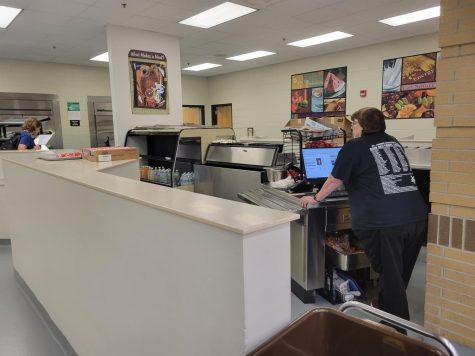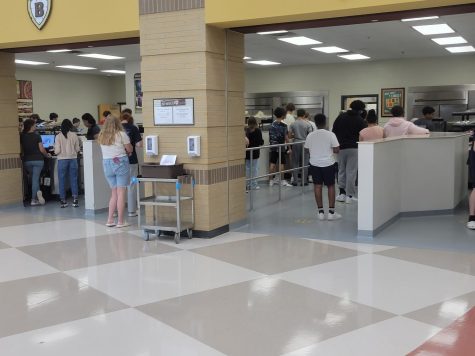Schools Charging for Lunch
August 19, 2022
Back to school: a time many students dread. And this upcoming year is no different – except parents might be dreading it too.

This year, the effect of the Universal School Meals Program Act, an act declaring that all school lunches would be free for any child, expired, despite efforts made to continue extending it. This means that parents will once again be paying for lunches from the school’s cafeteria. This bill expiring will impact many households, but particularly those who make just enough money that they do not qualify for free or reduced lunch, putting a sizable dent in their bank accounts over the course of the year.
Between rising prices hitting both families and schools alike, especially during the pandemic, free meals were a lifeline for many parents who were unable to work and/or afford meals, during not only the school year, but summer as well. However, schools are in a difficult situation. The rising costs and labor shortage mean that many cafeterias are having a hard time making back what they spent on the food, much less profiting from it.

“Returning to [prior] National School Lunch Program reimbursement rates would increase meal program losses and cut into education budgets, impeding efforts to meet the needs of students and jeopardizing progress in school nutrition programs,” the School Nutrition Association said.

Another noticeable change coming with school lunches being paid for: quality. As one cafeteria worker, Jenelle, explained to the newspaper The Guardian, “‘The idea [during the pandemic] was to get as many kids as possible to take a meal or bag, even if they didn’t need it so the food service contract could claim that meal to get paid […] We gave sub par, barely edible food, with tiny portions and no choices because it was free and reimbursed.’”
With the reintroduction of pricing, students all over the US have seen at least a small bump in quality – including Mt. Vernon’s own students.

“The cafeteria fruits and vegetables have definitely gotten better,” one student, who asked to remain anonymous, said when asked about the difference between this year’s food and last years.
Mt. Vernon student Reagan Rosner (11) stated that, “The school food has improved a little bit,” and Jolyne Reine (11) agreed with her.
Overall, though, many people around the US will be impacted by the expiration of this act. The USDA’s Summer Food Service program gave away an estimated 4.3 billion meals to children and families in need over the summers of 2020 and 2021, verus an estimated 142 million total in 2019. In the end, the expiration of the act this school year is estimated to impact around 10 million children across the United States, including all 4,420 students in the Mt. Vernon School Systems, but about 770 students in Mt Vernon’s District, the approximate number of economically disadvantaged students, might be hit harder by the expiration than others.